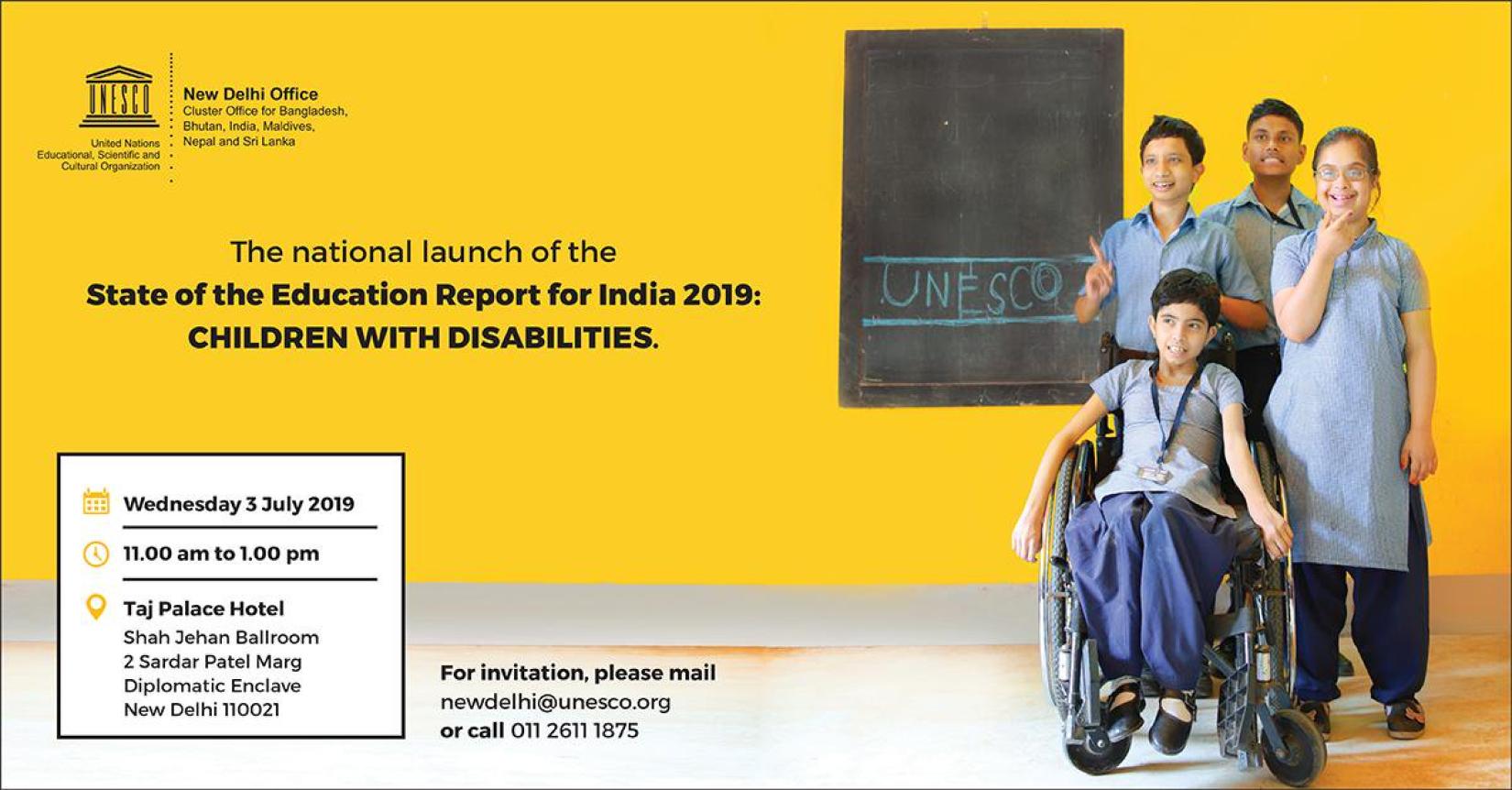Speech
National Launch of the UNESCO State of Education Report for India 2019: Children with Disabilities
03 July 2019
Speech by the UN Resident Coordinator (as prepared)
There are few developmental opportunities quite like education, that hold up the entire weight of…

Speech by the UN Resident Coordinator (as prepared)
- There are few developmental opportunities quite like education, that hold up the entire weight of our interconnected challenges. This is especially true in a country like India, poised for global leadership on Agenda 2030, making extraordinary progress on economic and social indicators; our progress can only be built on a strong momentum towards enhancing education outcomes for, what is, the largest population of young people in history.
- In India, education is not just good social policy – it is a right. The Right to Education Act, implemented through Samagra Shiksha, the Mid Day Meal, and Saakshar Bharat, is the foundation for sustainable development.
- And through the landmark act of 2016, the equal opportunity for persons with disabilities, and especially students and children with disabilities, is an even stronger right – safeguarded through the right to free education and a range of measures, implemented across ministries and stakeholders.
- Our global mandate calls upon us to put front and center the rights of those who face the greatest injustices and disadvantages when it comes to realizing the Sustainable Development Goals: the 4 million young people (5-19 years) with disabilities who are in schools and educational institutions, and over 2 million who are not. 54% of children with multiple disabilities and 50% of children with mental illness have never attended educational institutions. We must prioritize their rights.
- In this fight, the Government of India’s important commitments, through the Act of 2016 and programmes for inclusive quality education have pushed for significant transformations. The Inclusive India Campaign of 2017 has been a key enabler.
- Globally, the fourth Sustainable Development Goal focuses on Quality Education for all, but all SDGs are premised on full access to learning and to opportunity. In fact, 5 out of 17 SDGs make an explicit reference to persons with disabilities. The UN Convention on the Rights of Persons with Disabilities (UNCRPD) is in its 10th year of convening the world on this important issue.
- But by no means is this fight over. The UNESCO State of Education Report for 2019 comes at a critical time and shines light on the immense opportunity for future generations of young Indians, especially those living with disabilities.
- I invite you to consider the important recommendations this report makes: towards policy and legislative frameworks – how we can strengthen the right to education and how we must enhance coordination and convergence across departments, ministries, stakeholders, and, here I look inwards, UN agencies.
- The report very rightly places emphasis on strengthening data systems (the first step to be able to address an issue is to be able to see it). It calls for a comprehensive approach based on enriching entire school ecosystems and expanding the use of information technology – which can be a great enabler for the most vulnerable and left behind students.
- And the report also calls for the transformation of pedagogies and materials, the importance of overcoming stereotypes and damaging assumptions, and fostering effective partnerships.
- Agenda 2030 calls for completely new ways of doing things. An important part of this total transformation will be changes in education, so that future generations can grow up outside the box – with disruptive ideas about learning that are inclusive and fair.
- We are not only restoring justice to those who live with disabilities, we are nurturing leaders from across the spectrum of ability. And we will do it here first, in young and dynamic India. That is how the SDGs will be achieved.
UN entities involved in this initiative
UN
United Nations

















